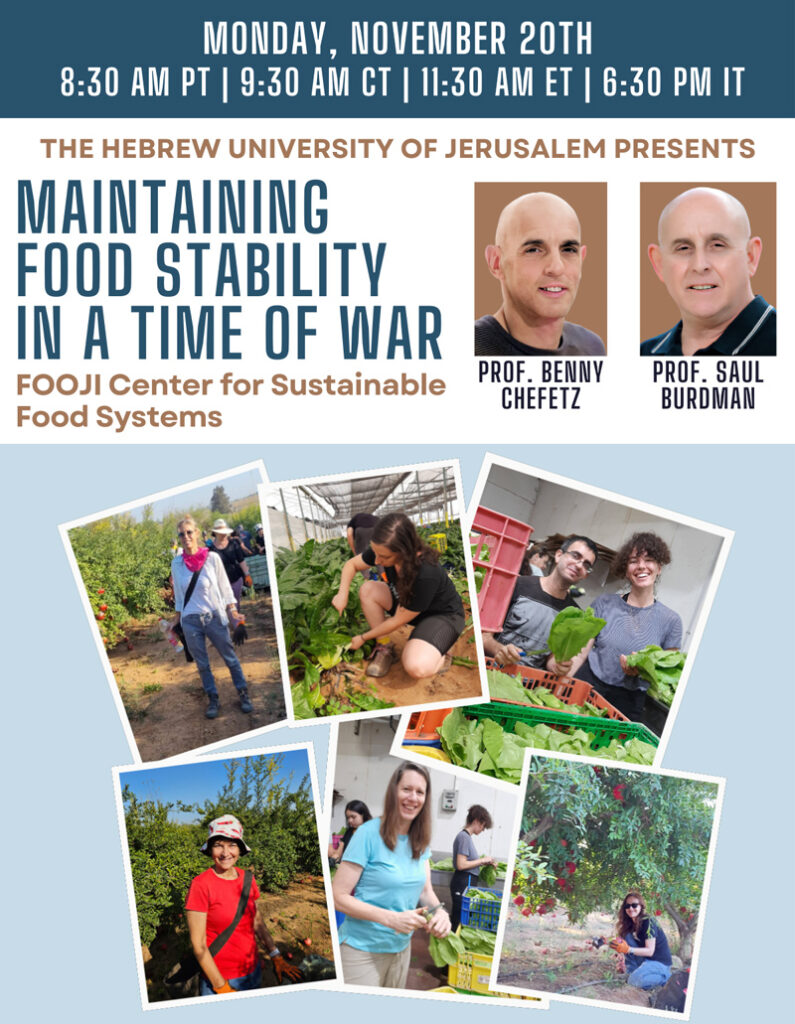

Join us on Monday, November 20th, to hear firsthand how the Hebrew University is tackling the arduous task of ensuring food security during wartime. We’ll hear from Professor Saul Burdman, the Dean of HU’s Robert H. Smith Faculty of Agriculture, Food, and Environment, and Professor Benny Chefetz, Head of FOOJI, HU’s Center for Sustainable Food Systems, as they discuss HU-led initiatives such as emergency crop harvests as well as the University’s overall efforts to provide sustainable food options for Israel and the world.
ESTEEMED PRESENTERS:
PROF. BENNY CHEFETZ serves as the Director of the Hebrew University Center for Sustainable Food Systems (FOOJI). He previously served as the Dean of the Robert H. Smith Faculty of Agriculture, Food and Environment at the Hebrew University (2017-2022). An alumnus of the Hebrew University, Dr. Chefetz earned his B.Sc. and Ph.D. at the Department of Soil and Water Sciences at the University’s Faculty of Agriculture. Dr. Chefetz conducted his post-Doctorate research at Ohio State University in the Department of Chemistry.
His primary focal areas are: (i) the fate of pharmaceuticals originating from reclaimed wastewater in agricultural ecosystems, and (ii) the effects of wastewater irrigation on the transport and mobility of pesticides in agricultural soils. Professor Chefetz is Professor of Environmental Chemistry and a world-leader expert in water reuse.
PROF. SAUL BURDMAN, Dean of the Robert H. Smith Faculty of Agriculture, Food and Environment, completed his Ph.D. at the Hebrew University in 2001 and took up his position at the Smith Faculty in 2003, following postdoctoral studies at the University of California, Davis.
His research deals with basic and applied aspects of plant-microbe interactions, including interactions of plants with both beneficial and pathogenic bacteria. The Burdman lab uses state-of-the-art methodologies to understand mechanisms and traits that are required by plant-associated bacteria to interact with plants. In addition, the lab aims at developing novel means to cope with bacterial diseases and promote plant growth for the benefit of agriculture, while minimizing negative impacts on the environment. Prof. Burdman has published more than 90 peer-reviewed manuscripts and book chapters and has supervised the research of 45 graduate students and postdoctoral fellows.